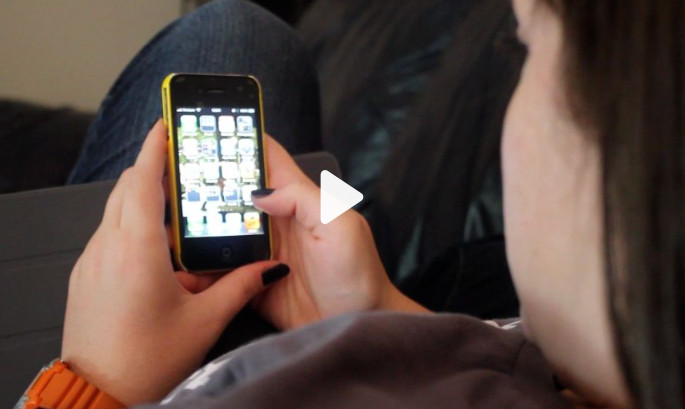
How Internet Addiction May Affect Your Teen’s Brain, According to a New Study
Teens who spend a lot of time on social media often report difficulties concentrating on important tasks such as homework or spending quality time with family. A new study has provided objective evidence supporting these complaints, revealing that internet addiction disrupts brain signaling in regions crucial for controlling attention and working memory.
Disruption in Brain Signaling
🧠 Key Findings
The study, published in the journal PLOS Mental Health, reviewed 12 neuroimaging studies conducted between 2013 and 2022 on a few hundred adolescents aged 10 to 19. It found that teens diagnosed with internet addiction exhibited disrupted signaling between brain regions responsible for executive functions, such as attention, planning, decision-making, and impulse control.
🔍 Criteria for Internet Addiction
According to Max Chang, the first author of the study and outreach case manager at Peninsula Family Service in San Francisco, the clinical diagnosis of internet addiction involves persistent preoccupation with the internet, withdrawal symptoms when offline, and sacrificing personal relationships for online time over an extended period, typically 12 months.
Impact on Teen Brains
🧩 Executive Function Network
When teens with internet addiction engaged in tasks governed by the brain’s executive function network, significant disruptions were observed. These disruptions suggest that behaviors requiring attention and impulse control become more challenging, potentially impacting overall development and well-being.
🔄 Changing Adolescent Brains
Given that adolescent brains are still developing, understanding the impacts of internet addiction on this demographic is crucial. The study highlights the importance of focusing on the unique vulnerabilities of teenage brains compared to adults.
Limitations and Criticisms
🔬 Fundamental Limitations
Dr. David Ellis, a behavioral scientist at the University of Bath’s Institute for Digital Security and Behaviour, points out several limitations of the study. He notes that cause and effect cannot be established from these studies and criticizes the focus on functional connectivity without adequately addressing the definition of internet addiction.
📋 Internet Addiction Definition
The concept of internet addiction, initially proposed humorously by psychiatrist Ivan K. Goldberg in 1995, is not universally accepted or diagnosable using current survey instruments. The wide range of activities enabled by the internet complicates the definition further.
Global and Cultural Considerations
🌏 Geographic Focus
All the reviewed studies were conducted in Asia, primarily involving male participants. China was the first country to declare internet addiction a public health crisis, reflecting differing global perspectives on the issue.
📈 Population Vulnerability
Dr. Eva Telzer, a professor of psychology and neuroscience at the University of North Carolina at Chapel Hill, emphasizes that the studies were cross-sectional, not longitudinal. This makes it possible that pre-existing differences in brain connectivity make some adolescents more vulnerable to developing internet addiction.

Overcoming Internet Addiction
🧠 Neural Pathways and Addiction
Dr. Smita Das, an addiction psychiatrist at Stanford Medicine, suggests that the brain signaling disruptions in internet addiction may relate to neural pathways similar to those involved in substance addiction. Functional connectivity patterns in affected teens’ brains align with those seen in individuals with substance use disorders.
🔍 Ongoing Research
Max Chang notes that understanding the mechanisms underlying internet addiction is an emerging field. Current observations using biomarkers like functional connectivity help bridge gaps in knowledge about how brain changes translate into behavior.
Identifying and Addressing Internet Addiction
🚩 Signs to Watch For
If you suspect your teen may have internet addiction, look for behaviors such as withdrawing from relationships and prioritizing internet use over other activities. These are telltale signs of addiction.
🛠️ Behavioral Strategies
Dr. Das recommends talking with your child’s doctor about behavioral strategies like cognitive behavioral therapy (CBT), mindfulness, and motivational interviewing. These therapies, particularly CBT, can help teens develop healthier internet use habits.
💊 Potential Medications
In severe cases, psychiatrists may suggest medication to treat technology addiction. Addressing underlying mental health conditions is also crucial for comprehensive treatment.
Preventative Measures
⏲️ Limiting Screen Time
Preventative measures include limiting screen time, taking regular breaks from online activities, and avoiding doom scrolling. Encouraging offline activities that engage your teen’s interests can help balance their internet use.
🌐 Balancing Internet Use
Dr. Caglar Yildirim, a professor at Northeastern University, advises finding activities that keep your teen engaged offline. Balancing the internet’s usefulness with its potential dangers is vital for healthy adolescent development.
Conclusion
📚 Understanding and Action
The study highlights the need for a nuanced understanding of internet addiction, particularly among teens. While recognizing the limitations and criticisms, it underscores the importance of addressing this modern challenge through informed, balanced approaches.
🏥 Resources and Support
The American Psychiatric Association has included technology addiction as a topic in its presidential initiative for 2023-2024, reflecting the growing concern. Families seeking help can find resources on the APA website, providing guidance and support for managing internet addiction.
By being proactive and understanding the signs and impacts of internet addiction, parents and caregivers can better support their teens in navigating the digital age healthily and productively.



















